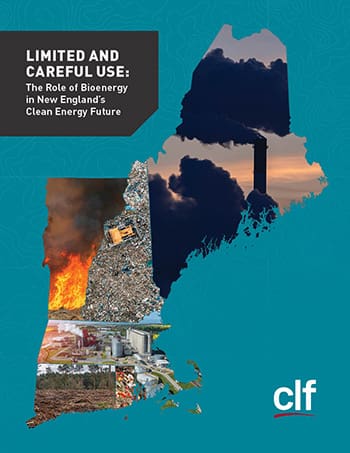Conservation Law Foundation is working to fight climate change and secure a livable and healthy future for all New Englanders.
We know New England needs to end its reliance on fossil fuels, and that presents a pressing question: What role will bioenergy play in the region’s energy system as we move toward 2050?
The fossil fuel industry is leaning hard on selling biofuels such as renewable natural gas as viable options to meet state mandates for cutting climate-damaging emissions. On the face of it, alternative fuels sound good. But what’s beneath the surface is more of the same climate-damaging fuels. We don’t have time or resources to waste on costly and ineffective solutions. Conservation Law Foundation is sorting fact from fiction. Bioenergy’s role in New England’s clean energy future is a limited and targeted one.
As the conversation around our clean energy future progresses, new fuels have entered the field that are purportedly “renewable” and “clean.” These fuels are often called “bioenergy” because they are produced from natural resources and waste. Policymakers are contending with what role these new fuels play in slowing climate change.
Our analysis shows that bioenergy should play only a small, limited role in moving off fossil fuels in industries that are nearly impossible to electrify. However, they are not a one-to-one replacement for fossil fuels – truly clean energy, like solar and wind, must pave our path forward.


